
It seems Monsanto’s toxic chemical glyphosate has now found its way into wine. It isn’t surprising, however, seeing as how grapes are pesticide and herbicide-laden.
Glyphosate has been showing up in foods both directly sprayed, and even foods that haven’t been sprayed, such as organic produce. It is the active ingredient in Monsanto’s Roundup herbicide, and has been used since 1974.
Recent research has suggested that glyphosate will “likely remain the most widely applied [herbicide] worldwide for years to come, and interest will grow in quantifying ecological and human health impacts.” The study showed that in 2014, farmers sprayed enough glyphosate to apply 0.8 pounds of the chemical to every acre of cultivated cropland in the U.S.
100 Percent of Wine Tested Contained Glyphosate
A supporter of Moms Across America went ahead and sent 10 different wine samples, from large and small vineyards, to Microbe Infotech Lab of St. Louis. What they found was shocking. The active ingredient in Monsanto’s Roundup weedkiller, glyphosate, tested positive in both conventional, and organic wines (although organic wines had significantly lower levels).
The test results showed that all 10 samples tested positive for glyphosate. The highest level detected was 18.74 parts per billion (ppb), which was found in a 2013 Cabernet Sauvignon from a conventional vineyard. This is 28 times higher than all other samples tested.
The lowest level detected was 0.659 ppb, which was found in a 2013 Syrah, a biodynamic organic vineyard, which, according to the owner, has never been sprayed.
All wines were from the North Coast region of California, the premium wine growing region of California and includes wines from Napa, Sonoma and Mendocino counties. The wines were sent in Sept of 2015 and February of 2016 in two separate groups.
The wine brands tested included:
– Gallo
– Beringer
– Mondavi
– Barefoot
– Sutter Home
So essentially, stay away from all wines made from California vineyards if not organic.
New Study Reveals Similar Results
This isn’t the only study that has revealed toxic weedkiller in alcoholic beverages. A new study released in March of 2019 confirmed that beer and wine are not safe from the cancer-causing weedkiller.
To explore how much Roundup the average person drinks, the U.S. PIRG tested 15 beers and 5 wines for glyphosate, the weedkiller’s active ingredient. Of the 20 samples tested, all but ONE contained glyphosate, and 3 out of 4 organic beers and wines contained glyphosate.
Brands with the highest concentration of glyphosate were as follows:
Wine
1. Sutter Home Merlot: 51.4 ppb
2. Beringer Founders Estates Moscato: 42.6 ppb
3. Barefoot Cabernet Sauvignon: 36.3 ppb
Beer
1. Tsingtao Beer: 49.7 ppb
2. Coors Light: 31.1 ppb
3. Miller Lite: 29.8 ppb
4. Budweiser: 27 ppb
5. Corona Extra: 25.1 ppb
6. Heineken: 20.9 ppb
7. Guinness Draught: 20.3 ppb
Other brands also came up positive for glyphosate, but at lower levels.
Health Concerns Over Glyphosate
Exposure to glyphosate at doses nearing the 0.100 ppb mark completely destroy beneficial gut bacteria, and exposures higher than that can cause breast cancer, destroy nerve cells, and damage the kidneys and liver. It can also cause miscarriages, as it destroys the placenta in pregnant and fertile women.
Since 1974, America has used over 1.8 million tons of glyphosate, with over 9.4 million tons having been sprayed on crops worldwide.
The World Health Organization finally declared that glyphosate is “probably carcinogenic to humans” in their International Agency for Research on Cancer in March 2015. That isn’t to say that Monsanto necessarily agrees, however, as they have been actively trying to fight this claim since then.
A simple Google Scholar search on glyphosate reveals its effects on health:
– stimulates the growth of human breast cancer cells
– chronic inflammation
– leaky gut
– endocrine-disrupting effects
– cell death
– neurotoxic to brain cells
– reproductive problems
– oxidative damage
– modifies sex hormone balance
– birth defects
– wipes out beneficial gut bacteria
How Does Glyphosate End Up In Wine?
As we all know, wine is made from grapes, and these grape plants are sprayed by Roundup. Roundup is used on every crop grown conventionally around the world. Contaminated soil can also retain these chemicals for over 20 years thereafter.
Back to the grape plants. Glyphosate (the active ingredient in Roundup) enters the plant through its roots. It is then taken up into the plant and quite literally embedded in the DNA and cell-fluid of the grape. Sounds tasty, right?
Vineyards aren’t the only crop susceptible to Roundup spray.
An EPA memo from October 2015 revealed a variety of popular food crops sprayed with Roundup. Even more shocking, is that when you compare this list, to the previous data from 2011, it shows that glyphosate use for popular food crops has continued to grow at an alarming rate.
Things like almonds, corn, grapes, oranges, sorghum, soy, sugar beets, sunflowers and wheat recieve well over one million pounds of glyphosate annually.
Cotton, another highly-sprayed crop, also receives around 18,400,000 pounds of glyphosate annually. So it’s not just in the foods or drinks you consume, but also on the clothes you wear.
Not Just Glyphosate?
Glyphosate is dangerous, but it is also important to be aware of other co-formulants present in glyphosate-based herbicides, which have been shown to be hormones disruptors and are 1000x more toxic than glyphosate alone.
According to a study by the International Journal of Environmental Research and Public Health:
Up to now, the endocrine-disrupting effects of pesticides have been studied mostly based on tests on their declared active ingredient. Here we report for the first time that, below their toxicity thresholds, the co-formulants, generally classified as inerts and kept confidential, act as endocrine-disrupting chemicals at levels up to several hundred times below the level at which the declared active ingredient demonstrates the same activity. Glyphosate is never used alone, but always with its co-formulants. Thus the physiological effects of co-formulants should be more thoroughly tested and declared. We also recommend that the calculation of the ADI for pesticides should be based on toxicity tests of the commercial formulations rather than solely the declared active ingredient.”
It is important to understand that glyphosate is toxic, no matter what the companies (who directly support or work for Monsanto) have to say. It kills the crops it’s sprayed on, and so crops are genetically engineered to be able to survive exposure to the chemical. We should NOT be eating these crops!
Not Just Wine!
Other alcoholic drinks, like beer, have also been found to contain the nasty chemical glyphosate. A report from Germany showed that 14 beers tested positive for glyphosate.
Glyphosate is also found in pretty much all conventional foods grown worldwide, so if you’re not too keen on drinking conventional wine or beer, you might also consider switching eating habits from conventionally grown food items to organic, local or home-grown.

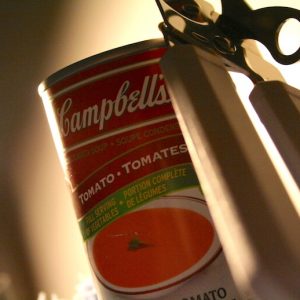
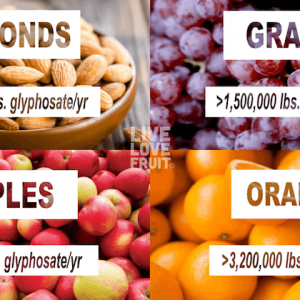
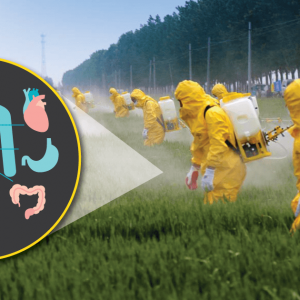

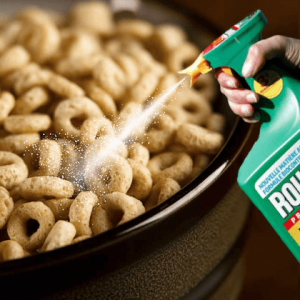
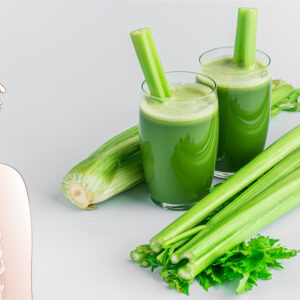

I’ve put together a project to gravity pipe water from above the crop line in the west of Quang Tri Province Vietnam to villages and schools who do not have adequate water. What they did have they poisoned with Glyphosate. Have seen it for myself. My group has raised AUS$40,000 but need a further US$100,000 to do 11 villages and schools which is but a small beginning.
You’re doing great things Peter! You’ll get there!
I’m not sure they spray the actual grapes and vines with Roundup, but I have read that Roundup is used to control weeds between and around the vines.
And you don’t think that these plants uptake the chemicals they’re sprayed with? The roots take up nutrients from the soil – and they don’t discern from glyphosate vs. magnesium or iron. Any food sprayed with glyphosate contains glyphosate at the end of the day. Period.
If the roots took up the glyphosate it would kill the vine. Therefore it would not affect the grapes because none would be produced from a dead vine. It is easy to find out exactly how glyphosate works. Why would you spray glyphosate ON food? Do you know the purpose of glyphosate? Your article will be used to educate our visitors on the proper use of glyphosate. Thanks for taking the time to share your thoughts.
According to essentially every Google search, and published study, roots do uptake glyphosate. For example, this article (https://www.ncbi.nlm.nih.gov/pmc/articles/PMC5606642/). Have you seen how glyphosate is sprayed? It goes everywhere, including the fruit (I’ve seen it myself, I live in Manitoba, where over 90% of the crops are sprayed with glyphosate end-of-year). Yes, I know the purpose of glyphosate – it’s a broad-spectrum herbicide and crop desiccant. For crops that need speeding up at the end of the year to mature, farmers spray glyphosate on the crop (yes, right ON the stuff we eat) to help speed up maturation so they can harvest faster. For crops that don’t need desiccation, they still uptake glyphosate through their root system, and thus, directly into the fruit. Just as the roots uptake other nutrients from the soil. They don’t discern from glyphosate.
If it goes into the ground, the vines take it up in the roots.
Roundup is only sprayed on the weeds popping up in the spring in the vine rows and before any leaves are even on the grape vines—nobody sprays Roundup after the the leaves emerge on the vines and certainly never when any fruit is exposed.
Glyphosate is still taken up by the roots of the plants and gets incorporated into the developing fruit. This is how plants uptake minerals from the soil – and they sure don’t discriminate against pesticides/herbicides.
Thank you for sharing the information; it sounds right.
It’s everywhere. They are poisoning the world.
In March 2015, the World Health Organization’s International Agency for Research on Cancer classified glyphosate as “probably carcinogenic in humans” (category 2A) based on epidemiological studies, animal studies, and in vitro studies.[5][8][9] In contrast, the European Food Safety Authority concluded in November 2015 that “the substance is unlikely to be genotoxic (i.e. damaging to DNA) or to pose a carcinogenic threat to humans”, later clarifying that while carcinogenic glyphosate-containing formulations may exist, studies “that look solely at the active substance glyphosate do not show this effect.”[10][11] The WHO and FAO Joint committee on pesticide residues issued a report in 2016 stating the use of glyphosate formulations does not necessarily constitute a health risk, and giving admissible daily maximum intake limits (one milligram/kg of body weight per day) for chronic toxicity.[12] The European Chemicals Agency (ECHA) classified glyphosate as causing serious eye damage and toxic to aquatic life, but did not find evidence implicating it as a carcinogen, a mutagen, toxic to reproduction, nor toxic to specific organs.[13]
I have read the whole article. There have been only 10 samples of wine. This is not very representative.
Hey Erich – I didn’t conduct the study, but it still gives an idea that wine is tainted. After all, grape crops are sprayed with over 1,500,000 pounds of glyphosate a year (use the search bar to look for my article on glyphosate sprayed on crops). You’ll be quite surprised!
I agree- drawing the connection.m between 10 wines tested (which are large companies who produce cheap wine) and all other California wine companies being tainted with roundup is kind of fishing. You say in your article to skip the California wine! I find this really irresponsible.
I don’t think it is irresponsible, I think it is pointing to the bigger picture of things. Conventional grapes are sprayed by glyphosate, and that ends up in conventional wine. Over 1,500,000 pounds of glyphosate is sprayed on grape crops annually (you can check out my article on glyphosate in crops here: https://livelovefruit.com/what-crops-are-sprayed-with-glyphosate/)
Why don’t you contact California department of pesticide regulation?
I don’t think they care if there are glyphosate residues in wine. There are glyphosate residues in just about every food 🙁
So why say don’t drink California wines? why not say don’t drink any wine or eat any food period. How many ppm are toxic to a person and over what period of time????
Glyphosate has been deemed a probable carcinogen by the World Health Organization. No level of glyphosate is safe. I realize you have a winery and are protecting your business, but maybe it’s time we started treating this planet with a little more respect and got rid of the chemical warfare we’re currently putting it under. Glyphosate is incredibly toxic to not only people, but wildlife, and the beneficial bacteria in the soil that works synergystically with plants to produce a healthy, more delicious tasting plant. Roundup is not safe, no matter how you look at it. If you wouldn’t drink a bottle of Roundup, don’t put it on your plants.
GLYPHOSATE is a carrier for many other ingredients like adjuvents that are a 1000 times more toxic than GLYPHOSATE itself.
Doesn’t take away from the fact that glyphosate is toxic, and should be out-ruled from use on crops.